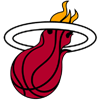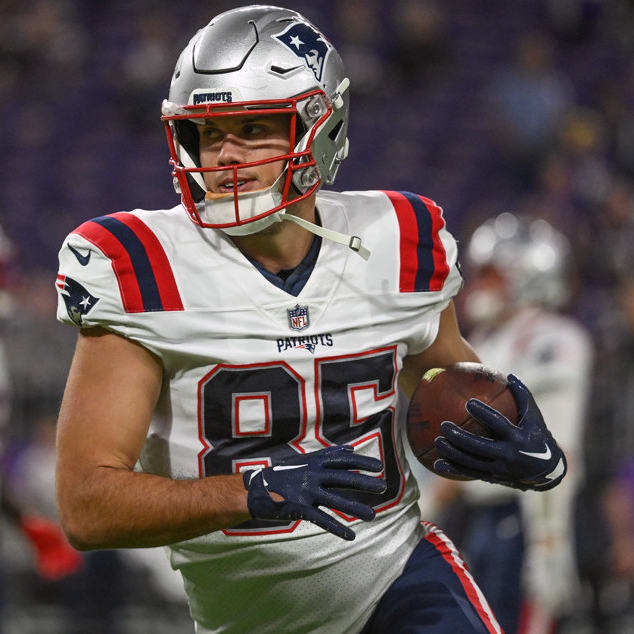This edition of the Job Battles series is the fourth part of five articles breaking down job battles at running backs. You can view the first edition (Cincinnati/Carolina/Denver) here, the second installment (Green Bay/Indianapolis) here, and the third post (Jacksonville/Kansas City/Chargers) here.
This one will look at the Raiders, Giants and Jets.
The competitions are listed alphabetically for team location, and the players are listed in order of years in the NFL. A general verdict is issued at the end of each blurb.
Ameer Abdullah vs. Alexander Mattison vs. Dylan Laube, LV
Zamir White is the starter in Las Vegas, with these three presumably fighting for the remainder of functions in the Raiders backfield. Given White's complete absence of pass-catching production throughout his collegiate and NFL career, there could be a considerable amount of targets up for the grab in the Vegas backfield to split up between these three players.
If two of Abdullah, Mattison and Laube play offensive snaps at the same time then they will likely thin out each other's usage to the point that none is useful in fantasy.
Abdullah will likely make the team, but primarily for special teams reasons. Abdullah has proven too small and slow to affect the game from scrimmage the way he did at Nebraska, and if the Raiders need him to provide yardage he probably can't. It therefore would make sense for the Raiders to keep both Mattison and Laube on a four-man
This edition of the Job Battles series is the fourth part of five articles breaking down job battles at running backs. You can view the first edition (Cincinnati/Carolina/Denver) here, the second installment (Green Bay/Indianapolis) here, and the third post (Jacksonville/Kansas City/Chargers) here.
This one will look at the Raiders, Giants and Jets.
The competitions are listed alphabetically for team location, and the players are listed in order of years in the NFL. A general verdict is issued at the end of each blurb.
Ameer Abdullah vs. Alexander Mattison vs. Dylan Laube, LV
Zamir White is the starter in Las Vegas, with these three presumably fighting for the remainder of functions in the Raiders backfield. Given White's complete absence of pass-catching production throughout his collegiate and NFL career, there could be a considerable amount of targets up for the grab in the Vegas backfield to split up between these three players.
If two of Abdullah, Mattison and Laube play offensive snaps at the same time then they will likely thin out each other's usage to the point that none is useful in fantasy.
Abdullah will likely make the team, but primarily for special teams reasons. Abdullah has proven too small and slow to affect the game from scrimmage the way he did at Nebraska, and if the Raiders need him to provide yardage he probably can't. It therefore would make sense for the Raiders to keep both Mattison and Laube on a four-man depth chart.
Mattison will almost certainly make the roster given that nearly all of his one-year deal is guaranteed money. Indeed, Mattison's contract and his production before 2023 give reason to think he's the likely backup to White, be it on rushing or passing downs. Mattison struggled as a starter last year but thrived as a backup to Dalvin Cook before that. Although he's slow Mattison runs with good anchor and can withstand endless volume, and on passing downs he's generally reliable. In the event that White were to miss time there's a good chance Mattison would play 40 or more snaps per game until White's return.
Laube is the wildcard, and an interesting one. The sixth-round pick from New Hampshire lacks volume or power ability as a runner at 5-foot-10, 206 pounds, so unlike Mattison it's unlikely that Laube would start if White were to miss time. With that said, Laube could be compelling enough of a pass-catching threat to emerge as one of the NFL's most active receiving backs. Mattison is a solid passing-down playet but he's probably a better blocker than receiver, whereas Laube looks capable of providing above-average efficiency on a considerable target load.
Laube was an extremely productive pass catcher in college, and his athletic testing was very good for a player applied as a pass-catching specialist. Laube's 1.52-second 10-yard dash grades high at the position and pairs with his standout three-cone time (6.84 seconds) to make him a dangerous YAC threat underneath.
Verdict: All three of Mattison, Laube and Abdullah make the Raiders roster, but only Mattison and Laube are likely to see usage from scrimmage. Mattison will likely be the clear backup to White and the starter if White were to miss time, but Laube's ability to provide standout pass-catching production could render Mattison a rushing specialist even if White were to miss any reps.
Devin Singletary vs. Eric Gray vs. Tyrone Tracy, NYG
Real quickly: Singletary is the starter and it's not close. He's a candidate for 20 carries every week, and neither of Gray nor Tracy can threaten there. The question is whether there will be pass-catching production to be had, because Singletary is a poor receiver while both Gray and Tracy offer more ability there.
In 2023, however, the Giants did not have much target volume to offer their running backs. Saquon Barkley caught 91 passes as a rookie, but he has only 98 catches in the last two years combined. Daniel Jones is a poor passer and needs shelter to avoid turnovers, and that shelter requires accommodations that crunch the spacing of underneath route runners. There's a chance the Giants see Singletary as a three-down player if only because running back targets are largely a moot concept in a Jones offense.
If the Giants don't care about Singletary's passing-down limitations then they don't have a reason to take him off the field pretty much ever. I think Singletary is set up for a high-volume season as a runner.
Of course, if Singletary were to miss any time then the competition between Gray and Tracy would all of a sudden matter much more. Unfortunately, their battle looks like a potential stalemate, and one that could result in a timeshare rather than either emerging as the clear backup to Singletary.
Gray and Tracy are largely opposites as prospects – Gray is experienced and polished but has very little athleticism to speak of at around 5-foot-10, 205 pounds with ~4.7 speed, while Tracy is a recent conversion project from wide receiver but one with plus athleticism (4.48-second 40, 124-inch broad jump at 5-foot-11, 209 pounds). Both Gray and Tracy are polished pass catchers, but as a runner Tracy is likely raw given that sophomore teammate Devin Mockobee started ahead of Tracy, whose career high in single-season rushing volume was a meager 113 carries in 2023.
Verdict: The Giants will try to keep Singletary on the field as much as possible, but as pass catchers specifically both Gray and Tracy are better. Neither of Gray and Tracy can be trusted in general as rushers, however, and neither has a convincing history of withstanding usage volume. If Singletary were to miss time then Gray and Tracy would likely split the resulting usage, with Gray in theory offering reliability and Tracy providing explosiveness.
Israel Abanikanda vs. Braelon Allen vs. Isaiah Davis, NYJ
Breece Hall should only leave the field when he needs a breather, so none of these three will have much use whenever Hall is healthy. If Hall were to miss time then it's possible that one of Abanikanda, Allen or Davis might become useful, on the other hand, so if one were to emerge as the clear backup to Hall then it would be a noteworthy fantasy development.
Abanikanda (5-foot-10, 216 pounds) might be the most raw of the three but is also clearly the most athletically talented, logging a 4.45-second pro day 40 time while displaying elite jumps (41-inch vertical, 128-inch broad). Abanikanda is also likely the most dangerous pure runner of the three, boasting a collegiate rushing average of 5.6 yards per carry with a high touchdown rate (7.2 percent). Abanikanda's limitations are that he is not polished on passing downs and doesn't really run with much power. Abanikanda is liable to lose the optics game when facing coaching evaluation, and fallible NFL coaches often prefer optics over results. That Abanikanda is the best overall runner of the three doesn't mean the Jets coaches will be able to tell as much, in other words.
Allen (6-foot-1, 235 pounds) and Davis (6-feet, 218 pounds) both run with obvious power, and if the competition comes down to burly appearance or/and shoulder pad collisions rather than yardage then Allen and Davis both have clear leads over Abanikanda in the rushing rotation. The question of whether Allen or/and Davis are actually productive with such usage is a separate matter.
The consensus at the moment says that Allen is the clear RB2 behind Hall, but the evidence is fleeting at best. While Allen runs with excellent anchor and has both good balance and flexibility for such a naturally heavy and powerful runner, Allen might be plagued by prohibitively poor speed. Allen refused to run a 40-yard dash before the draft even though the Wisconsin pro day track might be the fastest in the nation. Nearly everyone who runs a 40-yard dash on the Wisconsin track beats their combine time by at least 0.12 seconds and sometimes more. Corey Clement ran a 4.68 at the combine, for instance, and a 4.59 at the Wisconsin track. Quintez Cephus went from a 4.73 at the combine to a 4.62.
In other words, if Allen has 4.8 speed he likely would have still run no worse than a 4.69 on the Wisconsin track, yet he declined the opportunity after otherwise logging poor jumps (32-inch vertical, 117-inch broad). Indeed, I think there's evidence to conclude that Allen likely does run a 40-yard dash in the 4.8-second range. Against Purdue in 2021 Allen had a long carry where he ran in a straight line and was caught from behind by safety Cam Allen (4.56-second pro day 40). On the same play corner Dedrick Mackey held stride with Allen – Mackey ran a 4.80-second pro day 40. Allen had the initial distance to score a long touchdown, but instead he was ran down by a player with likely 4.65 speed. Similarly, in 2023 Allen broke free from the Purdue defense for what could have been a long touchdown, but he was easily ran down from behind by Kydran Jenkins – a defensive end who weighs between 260 and 270 pounds. Allen likely runs a 4.80-second 40 at best and his production at Wisconsin was not any more memorable than it was with the likes of John Clay or P.J. Hill.
I'm taking the position that if the Jets are sour on Abanikanda for whatever reason then rather than Allen it's Davis who has the best chance to stick as the RB2 behind Hall. Davis is only an average athlete at 218 pounds (4.57-second 40, 119-inch broad jump), but average is still a lot better than Allen's athleticism grade. The 17 pounds difference means Allen has more anchor than Davis, but if Allen can't actually cut the anchor when he needs to move then what's the point?
Davis was extremely productive at South Dakota State and seems capable on passing downs, so I think he will gain ground on Allen as time passes. Even if the Jets try to make Allen happen, it probably won't. Allen's lack of speed is likely so serious that it negates his otherwise standout talent as an athlete. A move to fullback might be in Allen's future.
Verdict: Abanikanda has the most talent but remains raw at only 21 years old – nearly a year younger than Davis. Davis and Allen are both more capable than Abanikanda on passing downs and run with more power. Allen in particular runs with a great deal of power, but running backs with 4.8 speed don't last in the NFL and Allen likely has 4.8 speed. If Abanikanda can't claim this backfield then expect Davis to eventually emerge as Hall's RB2.







































